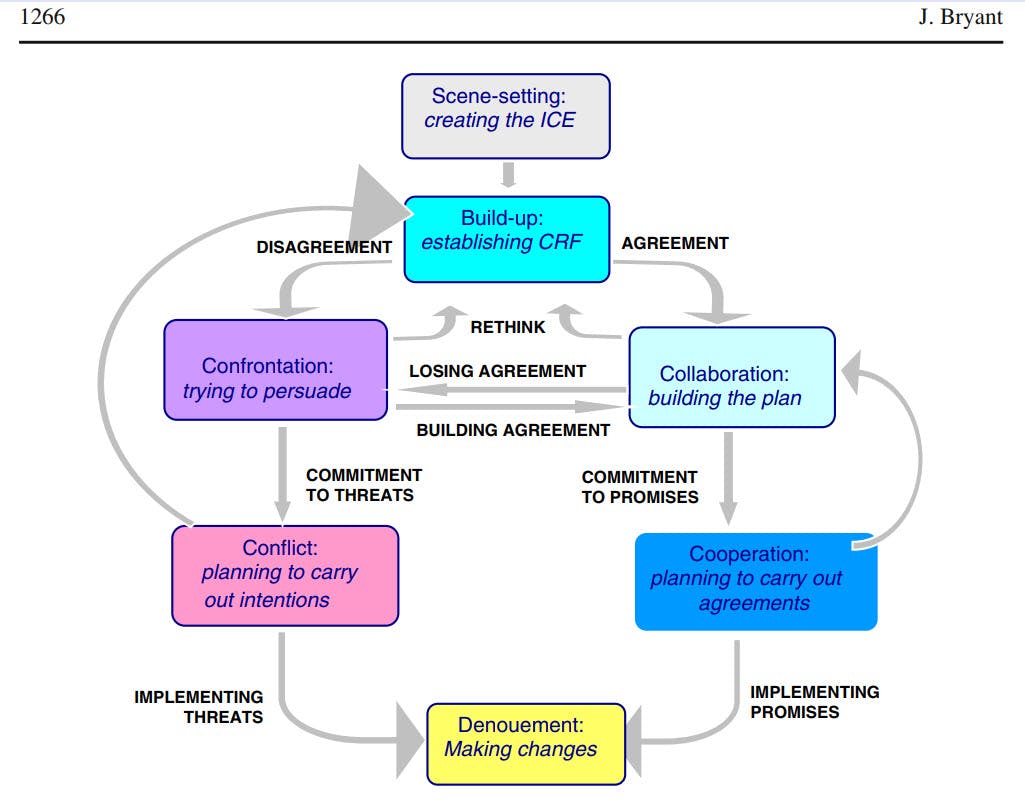Skip to content
Russia-Ukraine confrontation: bringing up new questions
The Rusia Ukraine confrontation is a very complex situation that has been analyzed and presented in the media paying attention to multiple factors according to the frame used by the analysts (Military, Social, Political).
However the potentiality of a frame that allows the analysts to view the whole landscape as a political drama (Based on the connection between Drama Theory and Prospect Theory) has not been used or if it has it has been very little.
Using the Drama metaphor you can not forget to anticipate how the confrontation will end and even work it with a reverse strategy to learn more about key points.


The application in a integrated way of Drama Theory and Prospect Theory to the Russia-Ukraine confrontation will bring, even now, different perspectives of possible scenarios of the confrontation.
By applying confrontation analysis the tool of Drama Theory, we can get insights about the positioning, the intentions and the threatening present if the actors do not get what they want.
Broken link
In other words we can identify the main dilemmas (Persuasion, Trust, Rejection) that the positions and intentions generate on the actors.
We can look at the quality of the relationship in the main confrontation (Putin, Zelensky, Biden, ), the shadow confrontation between Putin and the Russian speaking leaders in Ukraine and the internal shadow confrontation between Putin and his red circle and the Russian electorate.
The same can be done about Zelensky’s side.
Prospect Theory will let us know that the actors are not rational and that emotions play a very important role. The scenario presented by some experts considering that Putin will not make the decision to use nuclear weapons because the probability of success is very low is the result of considering that rationality (Expected Utility) will be the dominant factor when we know, from Prospect Theory (Kaneman and Tversky 1979), that if Putin’s initial conditions or frame, are that of a loser internally with cero prestige at the international level he will give more weight to risk taking which leaves open the possibility of the very irrational decision of considering nuclear weapons. We can learn a lot about the scenarios if we look at the decision of Kruschev during the so called Cuban Missile Crisis.
xxxx This is what Kruschev did, according to Professor Mark Haas ( ), in order to discard the position of his advisors that it could fail. So he went ahead and made the decision to place the missiles in Cuba and we know the final results.
The question is, if we apply Prospect Theory analysis simultaneous with Drama Theory (Howard, Bryant, Bennet) whether Putin can solve his Persuasion Dilemma when his Trust Dilemma with his red circle has increased.
So, if we analyze the situation from a Prospect and Drama perspective we will get a different scenario.
In the case of the confrontation between Ukraine and Russia, Drama Theory brings to the forefront the dilemmas of Persuasion, Trust and Rejection that all the parties face and how the pressures they generate demand to be solved together with the analysis of preferences under risk that is the main focus of Prospect Theory.
Want to print your doc?
This is not the way.
This is not the way.

Try clicking the ··· in the right corner or using a keyboard shortcut (
CtrlP
) instead.